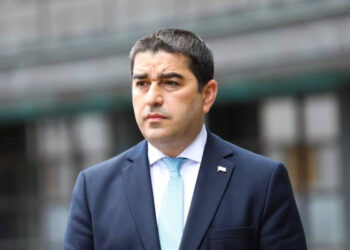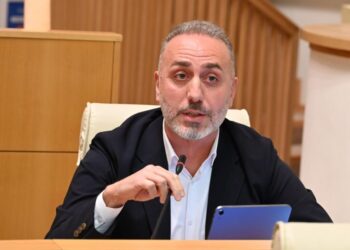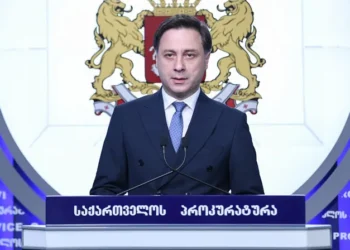US President Donald Trump and Ukrainian President Volodymyr Zelensky met at the White House on Monday for critical discussions on ending the war with Russia. While both leaders stressed the urgency of peace, they differed on key issues such as a ceasefire and Ukraine’s NATO membership.
US security role: “Very good protection”
Trump reiterated Washington’s commitment to Ukraine’s defense, though without specifying troop deployments or a new aid package. “We’re going to give Ukraine very good protection,” he said, suggesting a mix of military assistance and diplomatic guarantees could form the backbone of future arrangements.
While declining to detail the exact form of protection, Trump emphasized that Ukraine would not be left vulnerable: “Ukraine will be safe. That I can promise.”
Zelensky welcomed the assurance but underlined the need for binding guarantees: “Protection must be written in agreements. Ukrainians deserve certainty, not just words.”
Analysts noted Trump’s remarks may signal a shift from open-ended military aid to a structured security framework, possibly modeled after US commitments to non-NATO allies.
Ceasefire de-emphasized
Trump downplayed the need for a formal ceasefire before peace talks: “You don’t need a ceasefire to make a deal.”
Zelensky rejects territorial concessions
Zelensky remained firm on Ukraine’s sovereignty: “We will not trade away Donbas or Crimea. These are our lands, our people, and our future.”
NATO membership off the table
Trump clarified that Ukraine’s NATO bid would not be part of negotiations: “Ukraine will not be joining NATO. That’s not going to happen.”
For years, Moscow has framed NATO enlargement—especially the prospect of Ukraine joining—as a direct security threat. Trump’s rejection of NATO membership is seen as a concession designed to keep Russia engaged in negotiations and reduce the risk of further escalation.
Instead of NATO accession, Washington is signaling a push for alternative security guarantees — potentially bilateral or multilateral agreements — that would still give Ukraine strong Western backing without triggering Russia’s red line.
Zelensky did not directly respond to Trump’s NATO comment during the press remarks, but he reiterated Ukraine’s need for strong guarantees.
This suggests Kyiv might be willing to settle for binding bilateral or multilateral guarantees if NATO membership remains blocked.
European leaders show united support
With French President Emmanuel Macron, UK Prime Minister Keir Starmer, NATO Secretary-General Mark Rutte, and other leaders present, Zelensky highlighted the show of unity: “Europe is here with us today, and that means Ukraine is not alone.
Trilateral meeting with Putin?
Trump confirmed he would soon call Russian President Vladimir Putin: “We’ll be talking to President Putin very soon. A meeting with all three of us is possible.”
Zelensky cautiously welcomed the idea, saying he was “open to any format that brings us closer to peace.”
Tone: Friendly but no deals signed
Trump described Zelensky as “a tough guy, a fighter, a winner,” while Zelensky thanked the US and Europe: “This is not the end of the war, but it can be the beginning of the end if we stay united.”
No formal agreements were reached, but both sides agreed to continue talks.
Following the Oval Office meeting, Zelensky is expected to hold a separate session with European leaders in Washington, including Macron, Starmer, German Chancellor Olaf Scholz, and European Commission President Ursula von der Leyen.
Diplomatic sources indicate the talks will focus on coordinating a common Western position, ensuring that Europe and the US remain aligned on Ukraine’s security guarantees, reconstruction aid, and the path toward eventual peace negotiations with Russia.
Zelensky said he values this coordination: “Our strength is in unity. If the United States and Europe stand together, Russia cannot divide us.”
Header image: REUTERS














